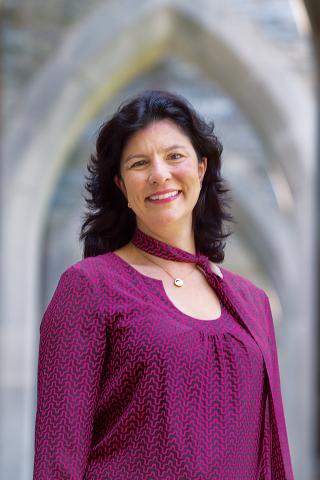Affirming a Commitment to Inclusivity
Concrete measures and important work.
Every fall, Bryn Mawr hosts an Alumnae Volunteer Summit, during which alums who give time in service to the College gather on campus for a weekend of training sessions. It is a wonderful experience. The span of the decades is represented, and the positive energy is high as we all strategize with staff about how to optimize our various work, whether in the areas of career development, clubs, fundraising, or reunion planning. This year, the weekend was combined with Homecoming, so we were also afforded the opportunity to tour the renovated gym facilities, cheer on the victorious field hockey and soccer teams, and berate our fellow alumnae/i who valiantly battled against the more spry undergraduate lacrosse team.
Are you, at this recounting, feeling wistful that you are not part of the volunteer brigade? Come join us! We are always so happy to welcome new volunteers, and I can promise that we will do our utmost to provide you with a meaningful role and lots of fulfilling work. Learn more about volunteering.
As much fun as the various volunteer trainings and Homecoming events were, perhaps most interesting was a presentation led by Director of Alumnae/i Relations Millie Bond ’05. Like many other institutions around the country, the College has recently affirmed a strong commitment to diversity, equity, and inclusion (DEI). But what does that mean? DEI has become such a politically correct buzz phrase in some corridors as to render it all but trite.
It was refreshing, therefore, to hear firsthand about the concrete measures being taken, in conjunction with the Race Matters Institute, to assess how the College, at many levels, might be inadvertently perpetuating inequalities and/or committing insensitivities with regard to DEI. A concrete example given was in the writing of job descriptions: To date, there has been little uniformity in how the College self-depicts in employment postings, which possibly has significantly skewed the applicant pools. In some, the College was described as a bucolic and peaceful academic setting, in others, an urban-proximate campus close to public transport; you can imagine how such minor inconsistencies could attract, over time, very different kinds of job seekers.
There is a serious focus on doing this hard work in terms of staff as well as volunteers. The Alumnae/i Board and Board of Trustees also have embarked on training with the Race Matters Institute this year; the training is an interactive, thoughtful, and long-term process, not a quick fix by any means. Among those of us who have been exposed to the curriculum and exercises, there is a palpable excitement to engage and make meaningful change for the well-being of our community.
I heard the term “race anxiety” for the first time this weekend—the notion that otherwise well-meaning people might become immobilized in trying to improve inequities for fear of making mistakes. Bond, in her talk during the Volunteer Summit, addressed this head-on by suggesting that we needed to be at peace with the likelihood that we will make mistakes during the process of trying to get to a better place with regard to DEI. It was a refreshing reminder of how we encourage our undergrads to, in the words of the magnificent Miss Frizzle from The Magic School Bus: “Take chances! Make mistakes!” We as the alumnae/i community must be willing do the same. All too often, we let the perfect be the enemy of the good, to the detriment of potentially positive evolution. I laud the College and our volunteers for taking these huge first steps and am excited to see where we arrive in the coming years.
Sincerely, Saskia K. Subramanian ’88, M.A. ’89
President, Bryn Mawr Alumnae Association
Published on: 11/19/2019
